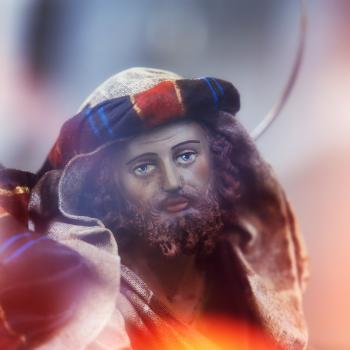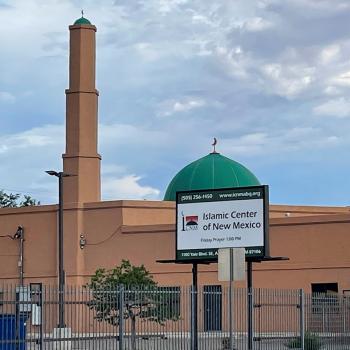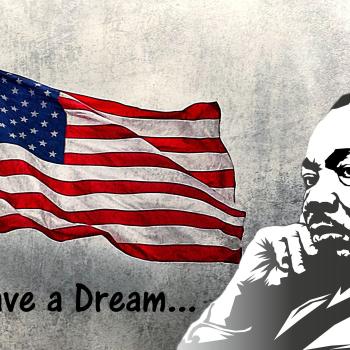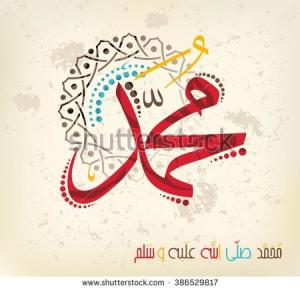 Bidah (innovation) has been one of the most commonly used words in the Muslim world and communities lately. Bidah referring here to innovation in religion. It appears that some among us label everything Bidah that they don’t like. Celebrating the birth of Prophet Muhammad is no exception.
Bidah (innovation) has been one of the most commonly used words in the Muslim world and communities lately. Bidah referring here to innovation in religion. It appears that some among us label everything Bidah that they don’t like. Celebrating the birth of Prophet Muhammad is no exception.
The ‘Bidah-minded’ Muslims have hijacked the Mawlid celebrations. Mawlid means birth, referring to the birth of Prophet Muhammad. (Mawlid un Nabiyy means the birth of Prophet)
Tomorrow, the 12th of Rabi’ al Awwal (the third month on Islamic calendar) is the birthday of Prophet Muhammad. (Shia Muslims consider the 17th of the month as his birthday). Growing up, the month of Rabi’ al Awwal used to be a festive month. Mawlid was celebrated with festivities for honoring and salutations to the Prophet. It was like Christmas (minus the commercialization) for the Muslims around the world. People would decorate their homes and mosques with lights and candles.
The Bidah-minded Muslim brothers seem to have hijacked the Mawlid celebrations.
Here are my 4 reasons why calling the Mawlid Bidah make no sense. These 4 reasons are the most commonly cited reasons for calling Mawlid Bidah, or innovation in Islam.
- It is a birthday celebration. He is not alive. Birthday celebrations are not meant for dead people.
Really? So we should not be honoring Jesus on Christmas? Should we stop celebrating Dr. Martin Luther King Day? No point in honoring those who are dead? Just forget and move on with your life? I can go on and on but you get the point.
- Prophet Muhammad never celebrated his birthday, therefore we shouldn’t either.
I would put the same arguments here as well. Did Jesus celebrate his birthday? If they did not celebrate, then we should not celebrate their birthdays? And mind it, it is not as if Christians and Muslims are blowing candles and cutting cakes on these occasions, and wearing birthday hats, or inviting a comedian, or a magician to show tricks at these gatherings.
They are honoring their heroes. Since when paying tributes and salutations to your beloved religious figures became an innovation?
If we use “he didn’t, so we shouldn’t” logic, then let’s declare the following bidah as well.
A. Performing multiple Hajj(only one is mandatory for the able Muslim). Prophet Muhammad and his close companions did not perform multiple Hajj.
B. Celebrating your children’s birthdays-for the same reasons.
C. Reading the Hadith or the tafseer books (exegesis of the Qur’an). They are not known to be around the lifetime of Prophet Muhammad and he did not write(and therefore read a tafseer).
- Muslims shouldn’t be celebrating any birthdays, as they are unIslamic.
This one is a head-scratcher too for the same reasons mentioned above. What’s the basis for this belief? The celebration of birthdays of ordinary people are secular events. Celebrating birthdays are neither Islamic nor unIslamic. It is how you celebrate that makes them unIslamic (boos parties and getting drunk, for example). But once again, how many engage in such parties?
- Celebrating his birthday-Mawlid is shirk/or leads to shirk.
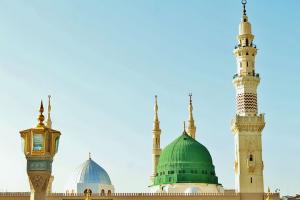 I do understand the “risk” is that you praise Prophet Muhammad so much that you cross the boundary and put him on the same pedestal as God Almighty. That’s where I tend to agree with the argument. Making partners with God is the biggest sin in Islam (or at least right up there).
I do understand the “risk” is that you praise Prophet Muhammad so much that you cross the boundary and put him on the same pedestal as God Almighty. That’s where I tend to agree with the argument. Making partners with God is the biggest sin in Islam (or at least right up there).
But then again who praises and makes Prophet Muhammad equal to God? I know no one in Muslim communities who does that during (or outside of) Mawlid celebrations.
Mawlid celebrations are festive religious occasions when Muslims honor Prophet Muhammad, not to blow candles or sing “happy birthday to you dear Prophet Muhammad”. Giving peace and salutations is indeed commanded by the Qur’an.
Surely God and His angels bless the Prophet (referring to Prophet Muhammad); O you who believe! call for (Divine) blessings on him and salute him with a (becoming) salutation. The Qur’an 33:56
There is evidence that the celebration of the birth of Prophet Muhammad dates back to the very early period in Islamic history. It dates back to the early days of successors of the companions of Prophet Muhammad when it was celebrated with poetry and songs to honor him, citing his good manners, which serve (or should serve) as an example for our behavior. There are many citations and this particular site lists many references, including that of Imam Jalal al Din Suyuti to indicate the centuries old tradition of the mawlid. I admit that not all references quoted are the well known and/or academic.
More than an occasion for poetry and songs, it is an occasion for spiritual growth. Mawlid celebrations often start with Quran recitation and praising God first and foremost. How he showed kindness, even to his enemies and how he conducted himself when facing adversities should be a source of guidance for all of us. His life struggles and the way he conducted himself are often narrated during Mawlid celebrations.
Two of his most famous nicknames are “Saadiq” and “Ameen”, meaning “the truthful” and “the trustworthy”, recognized by even his enemies. The Mawlid celebrations reflect on why and how he earned these nicknames.
He is called ‘the mercy for the worlds’ in the Qur’an and the Mawlid celebrations point out why God gave him that title. He showed mercy to his enemies upon conquering Makkah- same people who were after his life, and gave general amnesty. Numerous other occasions in his life show his mercy and kindness to others, especially the oppressed, the widows, the orphans, the poor and the needy.
Why would remembering and honoring him be so controversial and divisive? This is an occasion Muslims should use to get united, not divided. After the Qur’an (and belief in one God), he is the singular uniting force for all Muslims, like Jesus is for our Christian cousins. The love and respect for him should get us on the same platform.
Let’s use this beautiful occasion to come together. Ameen.
You can help spread the word. Share it on your social media by clicking on the icons in the upper left hand.
Never miss another post. Sign up for the newsletter on the upper right hand of this post
Title image courtesy of Shutterstock.




